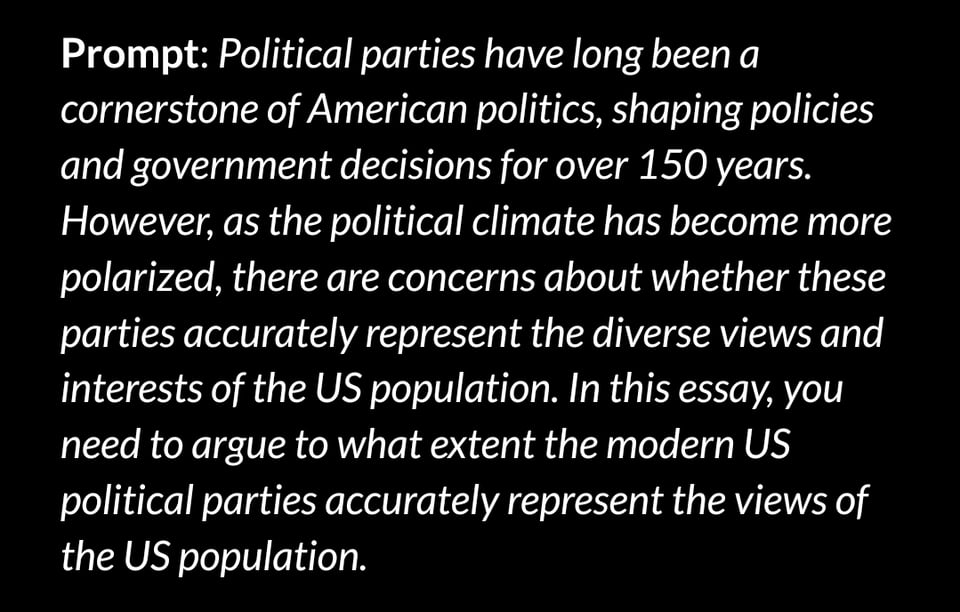A Syllabus for the Manosphere

Welcome to the rare Saturday edition of the newsletter.
Time got away from me last Sunday. My US Government students wrote seemingly book length treatises on the essay prompt below and I brought home an ocean of grading over the weekend.

They had plenty to say about the ills of first-past-the-post elections and negative voting (voting against the person you dislike, rather than voting for somebody) and as it probably should, the vocation trumped the side-project, thus a Saturday newsletter.
Also, note that this weekend is the start of spring break and my fifteenth wedding anniversary (yay us), so there won’t be a newsletter this coming Sunday because we’re headed out of town.
In the last newsletter, I promised to write about the manosphere—a term that has gained traction in recent years to describe a constellation of content creators, YouTubers, podcast hosts, and influencers. This ecosystem spans everything from Andrew Tate’s misogynistic anti-woman drivel, to athletes turned social commentators, to Joe Rogan’s three hour wandering conversations, to finance bros, to various figures from the so-called intellectual dark web like Jordan Peterson. It’s where young men learn about so-called “men’s rights,” how to be pick-up artists, to stack their bags with crypto, and can serve as a gateway to darker places online.
Before we begin a disclaimer: If you enjoy one of the creators I’m talking it about doesn’t mean I’m casting aspersions your way. Hope and I went to an Andrew Schulz show last year and nearly died laughing. But many of the creators we’re discussing this week serve as vectors for retrograde viewpoints—especially when it comes to women. So let me cook, and assume I’m coming at this with positive intent.
Sometimes, you think you understand a problem—only to realize later that you were only seeing a sliver of its true scale. The decline of in-person social communities is a well-documented phenomenon. Books like Bowling Alone by Robert Putnam have been telling that story for decades.
Additionally, the US suffers, possibly terminally, from the absence of an information consensus. It’s arguably our biggest collective malady. There’s no trusted media voice: Walter Cronkite is gone, the Jennings, Rather, Brokaw generation of anchors that replaced him are gone, and their replacements are a revolving door of handsome/pretty faces that lack credibility.
No one reads newspapers.
Local news viewership has cratered.
We lack a BBC or CBC that has trust across the political spectrum.
For many, online communities have filled the void—but these digital spaces are far more gender-segregated than the third places of the past. The internet, especially for young people, is sharply divided along gender lines. Few women spend time on 4Chan or r/WallStreetBets, just as few men are mainlining apartment resets and other lifestyle tutorials on TikTok and Reels. Even at my advanced age, my wife and I experience very different versions of the internet.
So we’re not just talking about boys and podcasts—we’re looking at the emergence of an online counter culture onto the mainstream. It’s like the sentiments of GamerGate now permeate everything. If you need a refresher on GamerGate see the video below.
That all said, as I sat down to draft my thoughts, I realized the topic is simply too big to tackle in a single newsletter—at least if I want to do it well. There is so much to address and try to get our heads around.
Rather than giving you a half-assed explanation of something I think is deeply important, I’d rather do this right. So instead, I’m offering a syllabus—a collection of resources that helped me make sense of the manosphere and its impact on society. I invite you to take your time over the next week or so, then share your thoughts and reactions. That way, we can have a real dialogue about the manosphere in the next edition of the newsletter.
First up, this explainer from the Center for Countering Digital Hate is a good intro to this topic. I intend to use this article later this year in my unit on media literacy. It does a great job identifying the various tracts within the manosphere and the political radicalization that spending too much time in a bad internet neighborhood results in, it notes:
The term “manosphere” refers to a network of interconnected misogynistic websites and online communities. It is a loose confederacy of interest groups that includes four main categories, amongst others: Pick Up Artists (PUAs), Involuntary Celibates (Incels), Men’s Rights Activists (MRAs), and Men Going Their Own Way (MGTOW).
While this piece is a great starting point, I think it overlooks a few other corners of the internet that belong in this conversation—particularly online spaces devoted to crypto and MMA. Now, hold up with that umbrage and pitchfork. I’m not saying that owning crypto (which I do) or loving MMA (which I don’t) makes you a bad person or means you’re being brainwashed.
But the internet is an acceleration machine, and algorithms designed to maximize engagement tend to push users toward increasingly extreme content. What starts as a casual listen to a Bitcoin bro explaining the impact of interest rates on token prices can quickly snowball. Next you’re obsessed with discussions of “hard money” and “the Austrian school of economics.” Soon, you’re onto conspiracy theories about the Federal Reserve. A few weeks later, your feed is full of weird anti-Semitic dog whistles about “George Soros” and “Global Finance,” and you’ve started putting air quotes around the word “globalists” and ranting about UN Agenda 21.
I truly wish I wasn’t talking about a real person with that example.
Next, I’d argue that you get the most bang for your buck for understanding the manosphere from this. Warning to readers who are sensitive about language, it contains profanity throughout, including the phrase “Karl Marx was a f***boy!” But that said, he nails so much of what drives much of online dude catered culture including Batman comics and third grade level analysis of readings of Nietzsche. I especially appreciate this video because it also discusses the existence of a parallel Black manosphere, full of the same misogyny, nihilism, and poorly interpreted philosophy (but with excellent lineups).
Speaking of the Black manosphere, NPR’s Code Switch has an episode specifically about that.
Next, according to Laura Bates in the Offline episode titled “How the Internet is Radicalizing Young Men” the manosphere influencers are helping millions of young men make sense of our upside down world, from their warped view of it. She echoes the point I made up top that these info merchants are filling a gap that's been abdicated due to our lack of media consensus. It’s an interesting listen—even if I don’t particularly enjoy Favreau, the host—and especially worthwhile if you’re the parent of a young man or parent of someone dating one.
Lastly, It Came from Something Awful by Dale Beran: This book doesn’t explicitly use the term manosphere, but it was instrumental in helping me grasp the deeply gendered nature of the internet. In short, Beran describes an online Cold War simmering beneath the surface of the 2016 election—one fought between two factions of the internet counterculture. On one side: the meme-making, Nazi-joke-loving, nihilist trolls of 4Chan. On the other: the sex-positive, police abolitionist, hyper-LGBTQ-friendly (with a strong emphasis on the T) world of Tumblr.
Their conflict played out through raids into each other’s forums, painstakingly organized online harassment campaigns, and meme wars, but their rhetoric and slogans ultimately seeped into mainstream political discourse on both the left and the right. If you don’t have time for the book, this 2019 Wired article gives a solid overview.
That’s a lot of homework.
This is, obviously, a sprawling topic. My hope is that these resources help you get your melon around all of this.
Take some time to dig in, reflect, and let me know what resonates (or doesn’t). Next time, we’ll continue the conversation, diving into what all of this means for education, parenting, and our broader social fabric.
Until then, enjoy your weekend—and if you're also heading into break, enjoy that too.